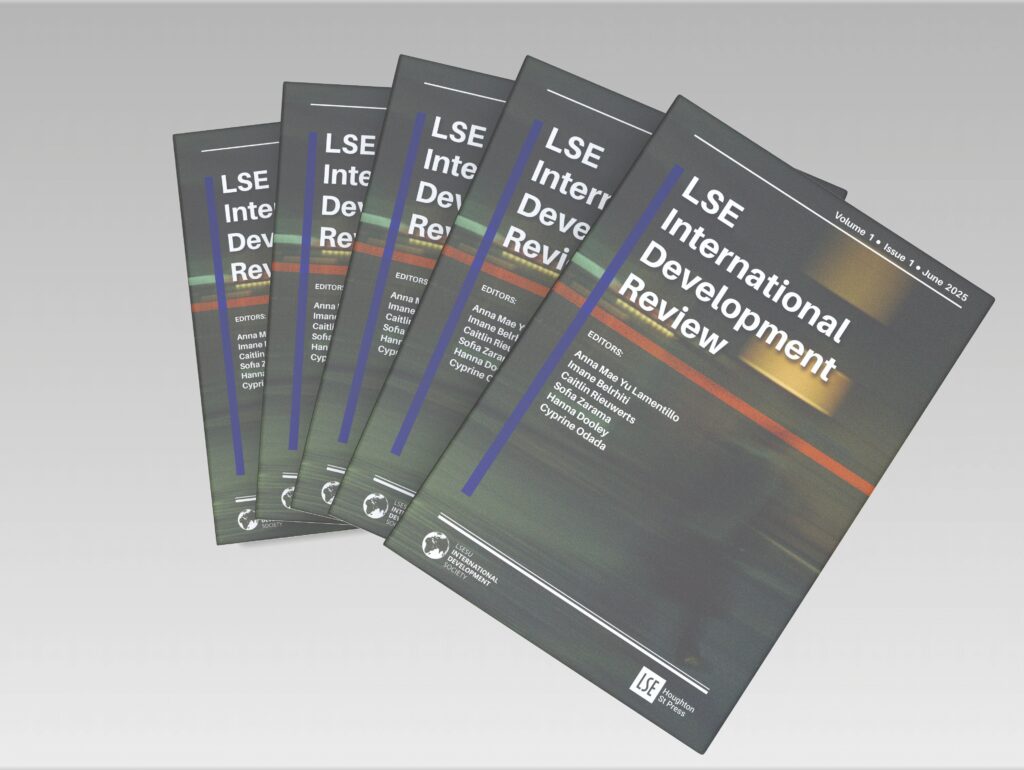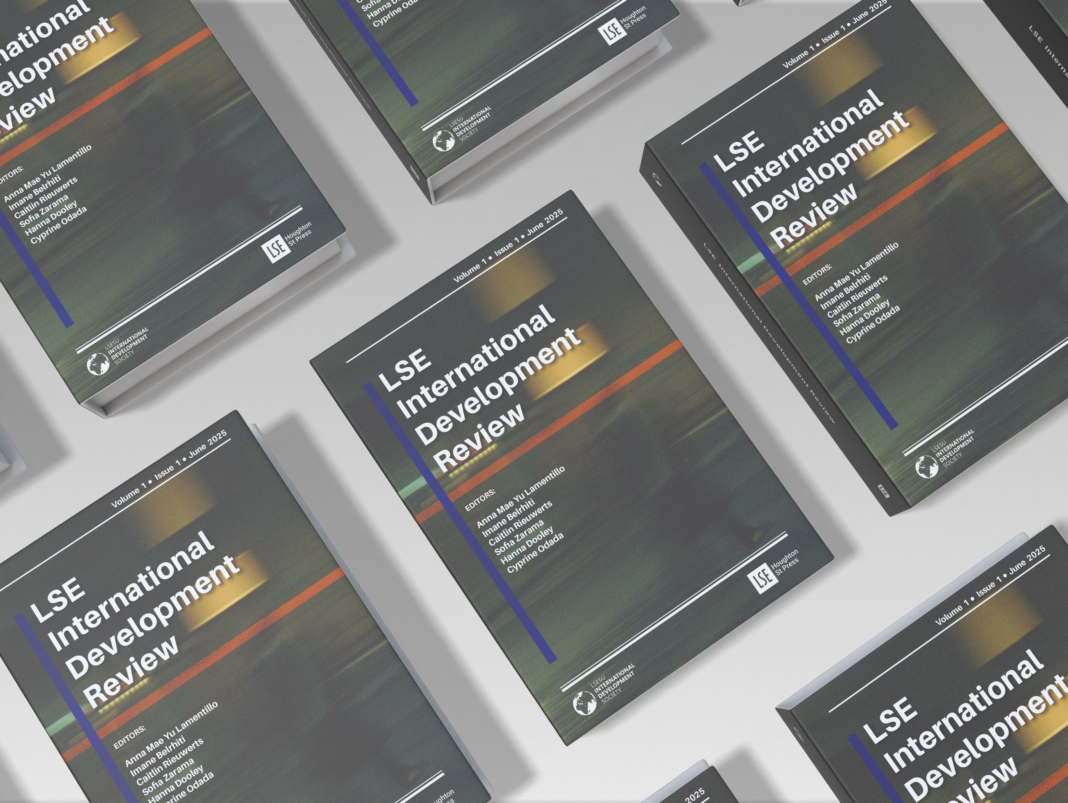LONDON, June 9, 2025 — The LSE International Development Review—an entirely student-based, open-access journal dedicated to advancing rigorous debate on international development—releases its first print issue. This edition brings together interdisciplinary analyses and policy-oriented research spanning development studies, migration studies, political economy, human development, environmental policy, and global health. Through a rigorous peer-review process, each article offers constructive contributions to contemporary policy discussions, from proposals to address global inequality to examinations of technological transformations affecting developing contexts.

“This first print issue represents a milestone for our editorial team and contributors,” said Editor-in-Chief Anna Mae Yu Lamentillo. “Our authors engage with today’s most pressing challenges, from rethinking governance in utopian mega-projects to exploring the impact of AI symptom checkers on health and economic outcomes. We hope these papers will inform policymakers and practitioners working toward equitable and sustainable solutions in diverse development contexts.”
The journal is led by a committed editorial board. Anna Mae Yu Lamentillo serves as Editor-in-Chief. Imane Belrhiti and Caitlin Rieuwerts oversee the editorial process as Deputy Editors. Section Editors Hanna Dooley, Cyprine Odada, and Sofia Zarama manage submissions across thematic areas, guiding each manuscript through peer review and copyediting to ensure clarity, academic rigor, and policy relevance.
The first print issue includes four chapters organized around key themes. Chapter 1, “Rethinking Governance,” features articles by Daria Menyushina on governance structures in utopian mega-projects; Han Pimentel on financial contagion and crisis; and Aline Rahbany on Toronto’s housing affordability crisis. Chapter 2, “Digital Transformations & Subjectivities,” presents Jeremy Ahearn’s analysis of datafication and shifting subjectivities in digital humanitarianism, alongside Elena Deamant’s narrative literature review of the health and economic impacts of AI symptom checkers. Chapter 3, “Low-Emission & Electrified Transport,” examines the political viability of low-emission zones in São Paulo through Paulo Tinoco Cabral’s research and assesses e-bus implementation in Nairobi’s BRT system in a paper by Sofia Zarama. Chapter 4, “Proximity, Pedestrianism & the 15-Minute City,” includes Anna Mae Yu Lamentillo’s assessment of the 15-Minute City model in Metro Manila; Cyprine Odada’s recommendations for gender-inclusive cycling and transport strategies; Essam Ewaisha and Mohammed Sinan Siyech’s exploration of the ecological implications of the Israeli–Palestinian war; and Mohammed Adjei Sowah’s vision for transforming Osu Oxford Street into a pedestrian-friendly mixed-use suburb.
The LSE International Development Review is published by LSE Houghton St. Press in association with LSESU International Development Society. Its mission is to perpetuate an international development discourse by bridging theoretical insights with practical policy debates. The journal welcomes submissions on any topic relevant to international development, provided authors emphasize policy implications and context-appropriate approaches. All articles remain openly accessible online and free of charge to readers worldwide.



